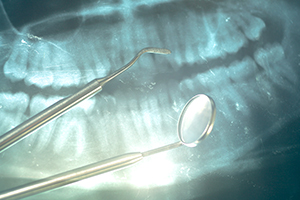 The Connection Between Teeth and Bone Health
The Connection Between Teeth and Bone Health
When most people think about root canals, they focus on the immediate benefits of pain relief and infection control. However, root canal therapy has a lesser-known yet significant advantage that extends beyond saving the tooth itself: preserving the surrounding bone structure.
The roots of your teeth anchor into your jawbone, stimulating it and helping maintain its density and strength. This stimulation occurs through the forces exerted during chewing and biting. When a tooth is lost or extracted, the lack of stimulation can lead to a gradual resorption or deterioration of the jawbone in that area.
Preserving Bone Structure Through Root Canals
Root canal therapy saves and restores a tooth that is severely damaged or infected. By preserving the natural tooth, root canals help maintain the normal function of chewing and biting, which in turn continues to stimulate the jawbone. Here’s how this process works and why it’s so important:
- Avoiding Bone Loss: When a dentist extracts a tooth, the surrounding bone no longer receives stimulation, leading to bone loss over time. By saving the tooth through a root canal, the bone stays in use, preventing the atrophy that typically follows tooth loss.
- Supporting Facial Structure: The jawbone supports the structure of your face. Significant bone loss can lead to changes in facial appearance, such as a sunken look or premature aging. Root canals help maintain the integrity of the jawbone, contributing to a more youthful and healthy facial structure.
- Providing a Stable Foundation: Preserving natural teeth ensures that the surrounding teeth remain stable and in their proper position. This stability is crucial for overall dental health, as shifting teeth can lead to misalignment and other dental issues.
- Facilitating Future Dental Work: In cases where dental prosthetics like crowns, bridges, or implants are necessary, having a stable and healthy jawbone is essential. Root canal therapy helps maintain this stability, making future dental work more effective and predictable.
The Long-Term Benefits of Root Canal Therapy
Root canals offer a long-term solution to dental problems that might otherwise lead to tooth loss. By choosing root canal therapy instead of extraction, patients can enjoy numerous benefits, including:
- Enhanced Oral Health: Preserving the natural tooth helps preserve overall oral health and prevent complications that can arise from missing teeth.
- Improved Functionality: With the natural tooth intact, patients can continue to enjoy normal chewing and speaking functions without discomfort or difficulty.
- Aesthetic Advantages: A healthy jawbone contributes to a more attractive smile and facial appearance, enhancing self-confidence and quality of life.
Don’t Wait, Get A Root Canal!
A root canal’s role in preserving jawbone structure is a crucial yet often overlooked benefit. By saving the natural tooth and maintaining the stimulation of the jawbone, root canal therapy helps prevent bone loss and supports overall oral health. If you’re facing a dental issue that might require a root canal, consider the long-term benefits for both your teeth and your jawbone. Consulting with an experienced endodontist can provide you with the best options for preserving your smile and maintaining your oral health for years to come!





Comments are closed.